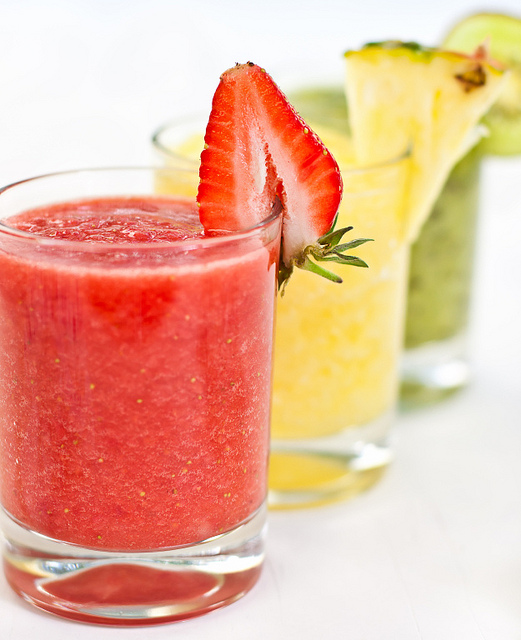- Make It Yourself Lavender Heart-Shaped Bath Bombs!
- 20 Things You Never Knew About “Down There”
- 12 Best Foods For Those Suffering From Arthritis Pain
- 12 Personal Hygiene Mistakes Almost Everyone Makes (Mom Never Told You About #4!)
- 15 Medicinal Plants And Herbs From The Cherokee People
- 12 Mind-Blowing Benefits Of Drinking Coconut Water During Pregnancy
- 12 Outstanding Winter Foods That Won’t Fatten You Up Like A Christmas Turkey
The Difference Between Detoxing and Fasting

Photo credit: bigstock
Have you ever been confused by the two term detox and fasting? Some people believe that they are pretty much the same thing but that’s not the case. There is a huge difference between the two, even though you do hear those words being used interchangeably.
To detox is to enable the body to remove toxins. Fasting is a severe restriction of calories, sometimes even to the point of NO calories being consumed with nothing more than water being consumed. A normal fasting routine means that all solid food is eliminated but lots of fluids are ingested, including juice, to help flush the body.
Some people wonder which fasting program would be best for them and the answer is whichever one suits your needs. Do plenty of research before you undertake any fasting program.
The Benefits of Fasting
If you are looking to help stop a fungal, bacterial, viral, or parasitic infection, not eating is a good way to be sure you stop feeding the infection. Fasting will “reset” your taste buds so you will enjoy your food more when your fast is complete, and not eating for a short period of time also retunes your appetite, allowing many people to stop their overeating habits once the fast is complete.
Fasting can break psychological issues with food or body weight. It can also help kick start a weight loss program by allowing people to drop water weight and some initial pounds quickly. For those who have digestion problems, drinking only water and juice for a period of time can allow the digestive system to rest and heal itself.
Continue to Page 2

Photo credit: flickr
Benefits of Detoxing
Although some people think detoxing means not eating solid food, this isn’t true. Most detoxing programs allow for foods and juice, but no “heavy” foods that are difficult to digest or that cause the body problems such as meat, starchy vegetables (such as potatoes or beans), and wheat products (such as bread, rice, and pasta). Salads have fantastic medicinal benefits, especially when made with a wide variety of vegetables and greens such as dandelion leaves, beet leaves, and collard greens. Don’t be afraid to add plenty of lemon, garlic, tomatoes, and apple cider vinegar. If you don’t care for salads, be sure to eat a wide variety of raw or lightly steamed vegetables.
By consuming solid food, you can stay on a detox program much longer than a fasting program, thus allowing sufficient time for the body to rid itself of toxins and heavy metals. In fact, many foods are well-known for aiding the body in its detox efforts such as garlic, cilantro, cabbage, and turmeric. When eating together, spices, herbs, and veggies are known to have strong accumulative health benefits.
When your digestive system, especially the intestines, is healthy, you get more nutrition from the foods you are eating. The enzymes that are found in raw, organic produce help the body to detoxify and repair itself at the same time.
Our bodies are constantly removing waste. A person in good healthy who eats a healthy diet always removes more toxins than they accumulate. How is this possible? These people are doing a “detox” program all day, every day, every time they eat! They still do detox programs or take supplements because they need to help the body detoxify from environmental toxins and heavy metals, but overall, they eat a naturally detoxifying diet every day.
So although you might hear some people talk about detox or fasting as if they were the same thing, you now know the difference. They are similar, but definitely not the same! Depending on the program, these two might even intertwine at times, but starving yourself for long periods is never a good idea. In order to be healthy, you simply need to change your food intake every now and then and always, always, ALWAYS make organic, fresh produce be the mainstay of your diet.
Sources:
Organiclifestylemagazine.com
Organiclifestylemagazine.com
Truthwiki.org
Truthwiki.org
































